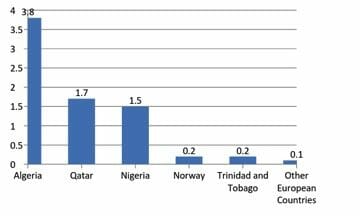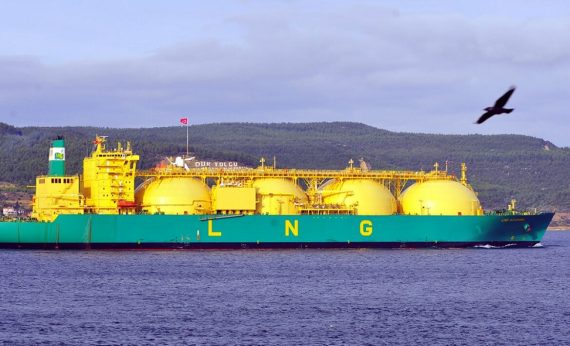In the 21st Century, natural gas is undergoing its “golden age” with the emergence of new technology for its development. This development opens doors for exploring new energy alternatives. New technologies particularly in energy production and trade have produced an increased demand especially for Liquefied Natural Gas (LNG) trade.
Recommended
The increasing role of LNG in the global natural gas market creates significant opportunities for Turkey, which meets its energy demand externally. Turkey is a natural bridge between the East, which has energy resources, and the West, which is the largest energy import market. Turkey has not been able to exploit this position for many years, and now wants to have power in the global energy market. So, it is making new agreements to become a central country rather than a bridge in energy trade.
In order to become a central country in energy trade, it is first necessary for Turkey to reduce natural gas import dependence on a handful of countries. With LNG trading, Turkey will be able to achieve this independence. But the share of LNG in energy import in Turkey’s annual gas consumption is considerably low.
The import of LNG started in 1994 from Algeria with the signing of an agreement, and a second source was added in 1999, when Nigeria also signed an agreement. Today, LNG is also imported via spot markets from Qatar, Norway and Trinidad-Tobago.

Source: BP
While 22.1 billion cubic meters of natural gas was imported in Turkey in 2004, this figure reached 49.8 billion cubic meters in 2015. Turkey’s long-standing economic growth has also increased the demand for energy resources. Energy supply security has recently begun to be seen as an important issue in Turkey.
In this case, Turkey needs to benefit from LNG trading. The demand of Turkey for LNG has also started to increase from this angle. As known, Turkey is able to import LNG from many different countries. LNG is an important tool in meeting daily and seasonal flexibility. It is also essential as an alternative source if the supply of natural gas declines or stops. However, the share of LNG in total natural gas consumption in Turkey is only around 15 percent.
Turkey needs to increase the amount of LNG in total energy consumption in the near future. There are currently two gasification terminals in Turkey. Marmara Eregli LNG terminal belongs to BOTAŞ, which has been operating since 1994 and has a capacity of 7.8 billion cubic meters. The second LNG terminal in Turkey, EgeGaz Aliağa Terminal, which was commissioned in the winter of 2006, has a capacity of 6 billion cubic meters.
With increasing energy consumption, Turkey has turned to LNG trading in order to decrease dependency on a single source and country. This has also increased the need for natural gas storage facilities. With ample imports of LNG, Turkey will have to store natural gas. The importance of natural gas storage facilities is increasing steadily and they have a serious role in ensuring energy security in the world. Natural gas storage facilities are especially aimed at eliminating differences in seasonal consumption and possible technical issues in gas supply.
As a result, Turkey needs to make many innovations in order to strengthen its LNG market. The steps that Turkey should take in order to become a trade centre in natural gas as follows: 1) Turkey should be involved in the process of liberalization in the natural gas market. 2) In order for a liberal market to emerge, energy imports should not be dependent on a single source and country. 3) Apart from BOTAS, other companies should also operate in the natural gas sector. 4) Within established storage facilities, advanced infrastructure and human resources should be developed. 5) Priority should also be given to initiatives for Floating Storage Regasification Units (FSRU) as storage facilities and re-gasification terminals.





